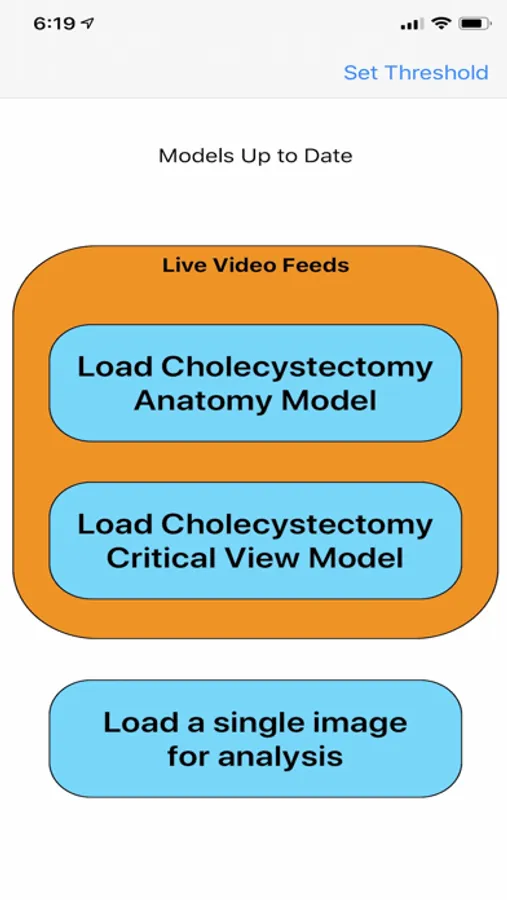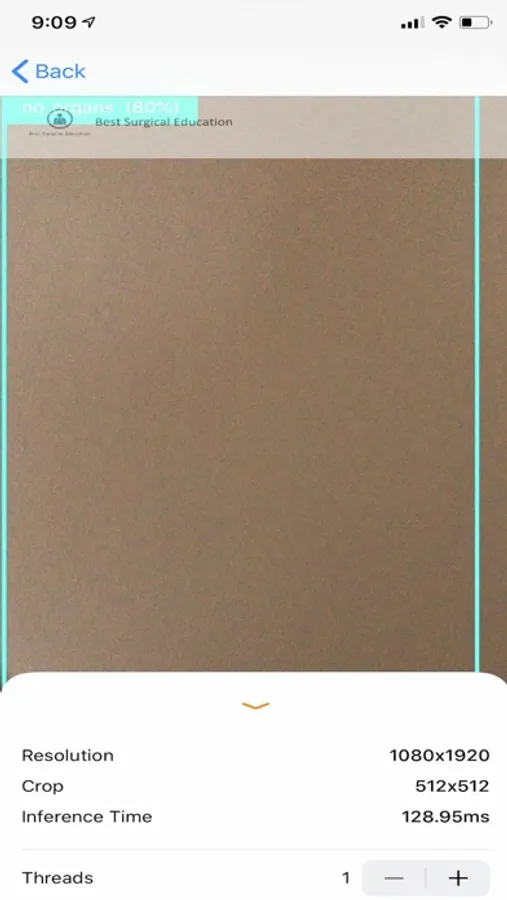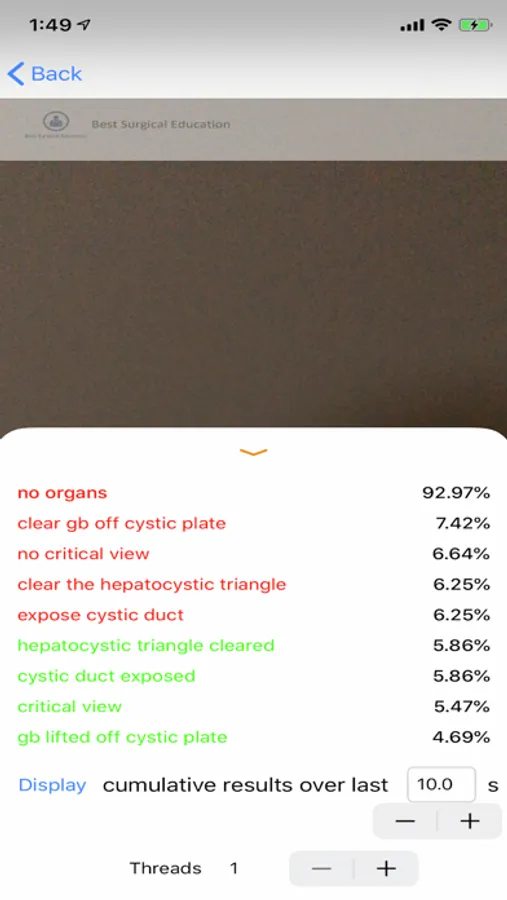AppRecs review analysis
AppRecs rating 4.0. Trustworthiness 82 out of 100. Review manipulation risk 19 out of 100. Based on a review sample analyzed.
★★★★☆
4.0
AppRecs Rating
Ratings breakdown
5 star
75%
4 star
0%
3 star
0%
2 star
0%
1 star
25%
What to know
✓
Low review manipulation risk
19% review manipulation risk
✓
Credible reviews
82% trustworthiness score from analyzed reviews
✓
High user satisfaction
75% of sampled ratings are 4+ stars (4.0★ average)
About Cholecystectomy AI
Bile duct injuries during a laparoscopic cholecystectomy are an important cause of morbidity after this commonly performed surgical procedure. Proper identification of the structures and obtaining a critical view of safety have been universally regarded as crucial to preventing these injuries.
Difficult gallbladder surgeries, where a critical view cannot be obtained are any surgeon's nightmare. Most surgeons have another surgeon look at the anatomy in this instance. However, this may not be always possible. The app provides a fresh set of eyes to look at this anatomy and tell the surgical team in real time whether structures have been safely identified and critical view has been obtained.
The tool gives you a probability for correct identification. While a higher probability indicates a greater confidence, the surgeon is still encouraged to use his judgement and other resources at his disposal before making decisions. The tool can identify anatomy on live surgical feed on a laparoscopic monitor, as well as use single images.
The model has been trained using Google's machine learning algorithms. It works in the same way a Tesla car identifies roadmarks and roadsigns while on auto-pilot. The only caveat is that human anatomy identification is far more complex and training machines will take more data and time. But trust us, we will get there. While the platform is already functional, every image you take will make the AI better.
The latest version of the app also directly identifies the correct areas for dissection by identifying zones in a live video which depict areas which should not be touched (eg: common bile duct), areas that need to be dissected carefully (eg: hepatocystic triangle) and areas which can be dissected with less care (eg: the gallbladder bed)
For those of you who are still wondering, J.A.R.V.I.S is an acronym for "Just Another Rather Very Intelligent System' coined by Tony Stark from the Marvel Cinematic Universe. JARVIS was named after Stark family's loyal household butler and aided Stark who was well known for his distracted nature and inability to follow instructions, despite being a genius.
Difficult gallbladder surgeries, where a critical view cannot be obtained are any surgeon's nightmare. Most surgeons have another surgeon look at the anatomy in this instance. However, this may not be always possible. The app provides a fresh set of eyes to look at this anatomy and tell the surgical team in real time whether structures have been safely identified and critical view has been obtained.
The tool gives you a probability for correct identification. While a higher probability indicates a greater confidence, the surgeon is still encouraged to use his judgement and other resources at his disposal before making decisions. The tool can identify anatomy on live surgical feed on a laparoscopic monitor, as well as use single images.
The model has been trained using Google's machine learning algorithms. It works in the same way a Tesla car identifies roadmarks and roadsigns while on auto-pilot. The only caveat is that human anatomy identification is far more complex and training machines will take more data and time. But trust us, we will get there. While the platform is already functional, every image you take will make the AI better.
The latest version of the app also directly identifies the correct areas for dissection by identifying zones in a live video which depict areas which should not be touched (eg: common bile duct), areas that need to be dissected carefully (eg: hepatocystic triangle) and areas which can be dissected with less care (eg: the gallbladder bed)
For those of you who are still wondering, J.A.R.V.I.S is an acronym for "Just Another Rather Very Intelligent System' coined by Tony Stark from the Marvel Cinematic Universe. JARVIS was named after Stark family's loyal household butler and aided Stark who was well known for his distracted nature and inability to follow instructions, despite being a genius.


